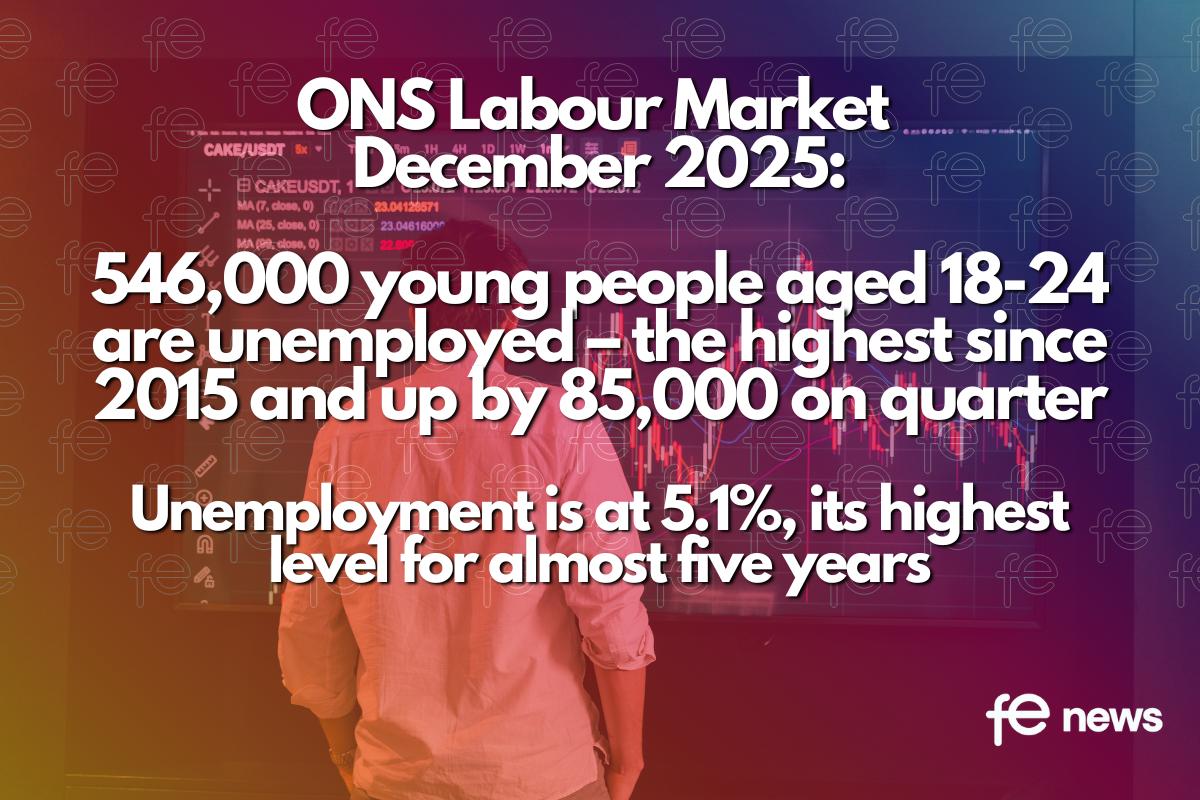Reforms to subcontracting for learners over 16

Government consultation
With all of the ‘Consultations’ that are out at the moment, all have been extended due to COVID-19 apart from the reforms to subcontracting for learners over 16 consultation, call me a cynic but, it seems clear that the die is cast by the Education and Skills Funding Agency (ESFA) regarding their implementation of what was set out in the consultation. The ESFA clearly have a ‘bee in their bonnet’ regarding subcontracting, and specifically about the delivery of sport related provision for young people delivered under subcontracting arrangements.
To me, some of this is down to our ‘Trade Press’ where there have been numerous accounts of the trade press berating providers for their subcontracting arrangements and the fees that are charged. It is also down to ‘some’ providers where there have been cases of extremely bad practice regarding subcontracting, where some providers do not pay subcontractors for many months (into 14 – 18 months) and where poor practice is ignored to utilise some subcontracting as a ‘cash cow’.
With this in-mind, we would welcome and invite the ESFA to extend the consultation, review their own prejudices regarding subcontracting, invite subcontracting practitioners in for active discussion / consultation and to review our overview of the closed consultation.
Subcontracting is a divisive subject with many different opinions, those that are totally opposed to it, to those who see significant benefits in the model. What is clear is that an effective supply chain model operational since 1995 when franchising or sub-contracting first started, has administered more than £50bn of funding since then has overall worked well.
There is good subcontracting when accompanied by a strong strategic rationale and we welcome the consultation proposed. There is also poor subcontracting when providers have simply used it as a conduit for moving funding around the system, either to protect their contract levels for future years or simply to make a margin on such activity with little added value.
However, a new model with less subcontracting should not result in a lack of oversight or control. It brings a responsibility on the Education and Skills Funding Agency (ESFA) and others and as a result, it comes back to effective account management.
There are 10 proposals that were put forward by the Education and Skills Funding Agency in its ‘Reforms to subcontracting for learners over 16’ consultation’, which closed on the 17th March 2020.
ESFA’s 10 proposals
- Proposal 1: Ensure that Subcontracting adds value
- Proposal 2: Limiting Subcontracting at Geographical Distance
- Proposal 3: Controls on the Volume of Subcontracting by a Lead
- Proposal 4: Restricting Whole Programme Subcontracting
- Proposal 5: Restricting the Volume and Value of ESFA Funds Held by a Subcontractor
- Proposal 6: Sports Subcontracting
- Proposal 7: Understanding Compliance
- Proposal 8: Publishing Information about Funding Retained
- Proposal 9: Introducing a Standard for Management of Subcontracting
- Proposal 10: Implementation.
Promote-Ed oppose the following 4 proposals:
- Proposal 2: Limiting Subcontracting at Geographical Distance
- Proposal 8: Publishing Information about Funding Retained
- Proposal 9: Introducing a Standard for Management of Subcontracting
- Proposal 10: Implementation.
The Four Proposals Opposed by Promote-Ed
Proposal 2: Limiting Subcontracting at Geographical Distance
There are many outstanding subcontractors out there that are over an hour away from the prime. Distance is not a good reason not to subcontract. It shows a clear lack of understating about quality and quality in a continuous improvement approach, and how supply-chain-management (SCM) operates. One can argue that the current COVID-19 Pandemic has introduced ways of working remotely for all business, not just providers, where distance is now the ‘norm’ and management of teams/subcontractors can be done.
Not just that but, lets look at the engineering and automotive sectors where subcontractors can be many hours away, this provision is also on a 4 Nation Basis when working with Manufacturers.
The ESFA inform “Distance arrangements increase risks to the quality of provision, because of the difficulties of managing such arrangements effectively”, we at Promote-Ed would welcome the ESFA providing evidence to support this statement. Many Providers where subcontracting is managed have a dedicated person/manager or team supporting subcontracting, the active process in SCM has no bearing in distance to the quality, it could be argued the closer the subcontractor is then complacency can come into play with the Prime provider.
Promote-Ed is clear that the concentration of SCM needs to be on the learner, employer, and active subcontracting management and not of distance.
Proposal 8: Publishing Information about Funding Retained
It is a positive move by the ESFA to ensure funding retained is questioned and audited to ensure clear Value for Money (VfM) and to ensure there is openness to the use of Public Funding.
However, where the ESFA inform “We do not expect the funding retained to exceed 20%, and we will require an explanation of the rationale for the arrangement in such cases. Instances where more than 20% of the funding is retained raises questions about the capacity of the subcontractor to make effective provision if they require excessive support. It also raises questions about the quality of the provision to be delivered at such a reduced rate of funding”, we know that imposing a cap on the % retained shows a lack of understanding to subcontracting and how Primes have been subcontracting.
Promote-Ed advocate that it is not about the percentage, it is actually about the support and additional activity the subcontractor might want/need that is of most importance, therefore the percentage will naturally increase given on certain variable that must be taken into consideration, this is from risk of the subcontractor to services that the Prime will offer.
I am a strong believer that the percentage can be charged in accordance with a sliding scale and activities that are being done can be agreed by all parties, and then the percentage could be high. There can be a raft of activities that drive the percentage upwards, this can be from IQA support, delivery, QA, CI, CPD, resources, IA, registration, FS support, VLE hosting, impact measurement, institutional reviews on employers, ONA’s/TNA’s, audits etc. Then when you couple in risk (a risk score approach to define the baseline percentage) to the prime and all of that wrapped up the managing the ILR/Ofsted and the Prime taking full responsibility and overall risk then, why can’t a provider charge a higher percentage than 20% (say 39%) if they are offering excellent Value for Money through a true VCA (Value Chain Analysis), VfM index?
Furthermore, in the new market, which is open, providers have a choice to subcontract or not, and if they are happy to pay more than 20% for the services as mentioned above, what is wrong with that? As an example, ‘Supporting Apprenticeship Providers’ entering the market have to be a subcontractor, and may not have the experience, expertise to ensure a full apprenticeship model is of good quality and is compliant. Is this situation if a Supporting Provider is happy to be charged more than 20% to ensure a success for them and to develop their understanding, practice and process then I ask the question again, what is wrong with that?
And if all parties (Prime, Subcontractor, Learner, Employer) are happy then that’s good VCA at work. An informed percentage cap or short distance doesn’t stop poor management and non-payment to the subcontractor, and it doesn’t stop bad practice.
Proposal 9: Introducing a Standard for Management of Subcontracting
Many of the proposals in the consultation will require ‘approval’ by the ESFA. With those approvals comes responsibility for the ESFA and accountability and for a mechanism to consider requests from providers quickly and efficiently. Many of our users report that the ESFA are currently simply referring them back to the funding rules / guidance, this is not much use given that providers will have read the rules/guidance and are in contact with the ESFA because such guidance is not clear.
Let’s look at the Merlin Standard as an example –:
“The Merlin Standard is a standard of behaviour which DWP prime providers are expected to adhere to in their relationship with their subcontractors. It is designed to encourage excellence in supply chain management by prime providers. This ensures the fair treatment of subcontractors and development of healthy high performing supply chains.
The Merlin Standard is a set of four principles against which prime providers are assessed in order to achieve Merlin Standard accreditation including. These are:
- Supply chain design
- Commitment
- Conduct
- Review.”
This sounds positive, but in reality, is it really like this? The person or team competing the Merlin application leaves the provider, then even through the provider has attained the Merlin Standard the person/s that ‘gained’ it are no longer in the business and therefore the business does not have the experience for the Merlin Standard. The Funding bodies have introduced Standards before, who can ever forget TQS!
Evidence needs to be sought from Ofsted regarding providers that already have the Merlin Standard and Ofsted’s view as to subcontracting management / SCM and discipline by said Provider.
Will there be a cost for the provider to any Standard that the ESFA introduces, and if so, then why?
What is needed is proactive effective account management from the ESFA, where active subcontracting management discussions and challenges can be held, not just a process to inform that a Provider has met a set of criteria. A significant reduction in subcontracting will result in the ESFA needing more effective processes for dialogue with providers and account management.
Proposal 10: Implementation
The ESFA propose to introduce the changes set out in these proposals as quickly as possible from the 2020/21 academic year onwards.
The timescales for the consultation and proposed implementation is far too short for providers, either primes or subcontractors to effectively plan; particularly given the guidance for the expansion of the non-levy (funding programme has not yet been made clear) and with the current COVID-19 Pandemic. Time is needed for:
- Business planning,
- Culture change – change management, process change,
- Documentation change,
- Any Standard approval needed,
- Subcontracting change process management,
- Business interruption due to COVID-19.
The outcomes from the consultation and timing of launch of new funding rules should be implemented progressively given the impact on providers. There needs to be a time for planning. Providers (all providers) will need time to embed the new processes into their business process structure and current operating mode.
Patrick Tucker, writing on behalf of Promote-Ed
Discuss this topic in the Promote-Ed forums











Responses